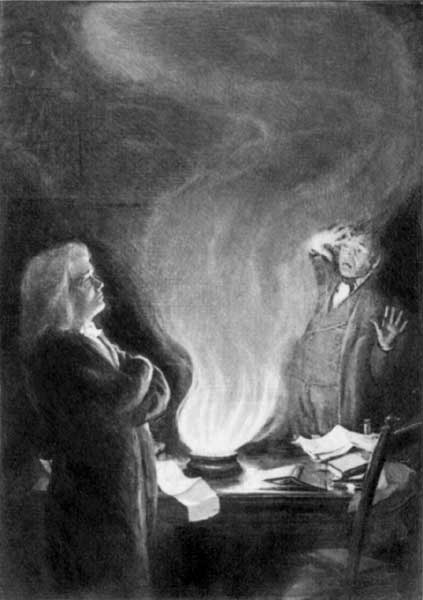| Home -> Paul Elder -> The Case of Summerfield -> Introduction | |||
 |
|||
| Western Classics No. Two The Case of Summerfield By William Henry Rhodes With an Introduction by Geraldine Bonner The Photogravure Frontispiece from an Oil Painting by Galen J. Perrett Paul Elder & Company San Francisco and New York Copyright, 1907 by Paul Elder and Company The Introduction The greatest master of the short story our country has known found his inspiration and produced his best work in California. It is now nearly forty years since "The Luck of Roaring Camp" appeared, and a line of successors, more or less worthy, have been following along the trail blazed by Bret Harte. They have given us matter of many kinds, realistic, romantic, tragic, humorous, weird. In this mass of material much that was good has been lost. The columns of newspapers swallowed some; weeklies, that lived for a brief day, carried others to the grave with them. Now and then chance or design interposed, and some fragment of value was not allowed to perish. It is matter for congratulation that the story in this volume was one of those saved from oblivion. In 1871 a San Francisco paper published a tale entitled The Case of Summerfield. The author concealed himself under the name of "Caxton," a pseudonym unknown at the time. The story made an immediate impression, and the remote little world by the Golden Gate was shaken into startled and enquiring astonishment. Wherever people met, The Case of Summerfield was on men's tongues. Was Caxton's contention possible? Was it true that, by the use of potassium, water could be set on fire, and that any one possessing this baneful secret could destroy the world? The plausibility with which the idea was presented, the bare directness of the style, added to its convincing power. It sounded too real to be invention, was told with too frank a simplicity to be all imagination. People could not decide where truth and fiction blended, and the name of Caxton leaped into local fame. The author of the tale was a lawyer, W. H. Rhodes, a man of standing and ability, interested in scientific research. He had written little; what time he had been able to spare from his work, had been given to studies in chemistry whence he had drawn the inspiration for such stories as The Case of Summerfield. With him the writing of fiction was a pastime, not a profession. He wrote because he wanted to, from the urgence of an idea pressing for utterance, not from the more imperious necessity of keeping the pot boiling and of there being a roof against the rain. Literary creation was to him a rest, a matter of holiday in the daily round of a man's labor to provide for his own. His output was small. One slender volume contains all he wrote: a few poems, half a dozen stories. In all of these we can feel the spell exercised over him by the uncanny, the terrible, the weirdly grotesque. His imagination played round those subjects of fantastic horror which had so potent an attraction for Fitz James O'Brien, the writer whom he most resembles. There was something of Poe's cold pleasure in dissecting the abnormally horrible in "The Story of John Pollexfen," the photographer, who, in order to discover a certain kind of lens, experimented with living eyes. His cat and dog each lost an eye, and finally a young girl was found willing to sell one of hers that she might have money to help her lover. But none of the other stories shows the originality and impressively realistic tone which distinguish The Case of Summerfield. In this he achieved the successful combination of audacity of theme with a fitting incisiveness of style. It alone rises above the level of the merely ingenious and clever; it alone of his work was worth preserving. Scattered through the ranks of writers, part of whose profession is a continuous, unflagging output, are these "one story men," who, in some propitious moment, when the powers of brain and heart are intensified by a rare and happy alchemy, produce a single masterpiece. The vision and the dream have once been theirs, and, though they may never again return, the product of the glowing moment is ours to rejoice in and wonder at. Unfortunately the value of these accidental triumphs is not always seen. They go their way and are submerged in the flood of fiction that the presses pour upon a defenseless country. Now and then one unexpectedly hears of them, their unfamiliar titles rise to the surface when writers gather round the table. An investigator in the forgotten files of magazinedom has found one, and tells of his treasure trove as the diver of his newly discovered pearl. Then comes a publisher, who, diligent and patient, draws them from their hiding-places, shakes off the dust, and gives them to a public which once applauded and has since forgotten. Such has been the fate of The Case of Summerfield. Thirty-five years ago, in the town that clustered along the edge of San Francisco Bay, it had its brief award of attention. But the San Francisco of that day was very distant - a gleam on the horizon against the blue line of the Pacific. It took a mighty impetus to carry its decisions and opinions across the wall of the Sierra and over the desert to the East. Fame and reputation, unless the greatest, had not vitality for so long a flight. So the strange and fantastic story should come as a discovery, the one remarkable achievement of an unknown author, who, unfortunately, is no longer here to enjoy an Indian summer of popularity. Geraldine Bonner. |
|||